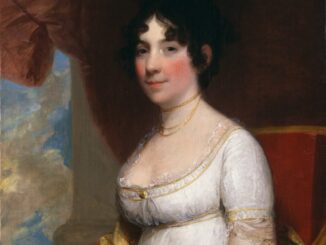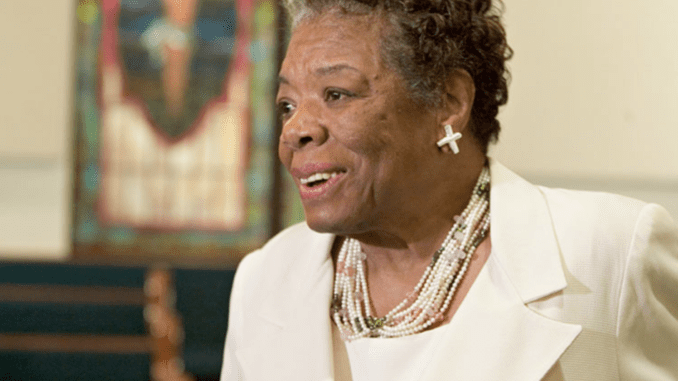
Throughout the month of March the NSJ will be celebrating the remarkable contributions of North Carolina women for Women’s History Month
Most well known as the best-selling author of “I Know Why the Caged Bird Sings” and for her work as a poet, Maya Angelou was also an actress, the first black female trolley car driver, a Grammy-winning composer, a director, a calypso singer, a dancer and an international civil rights leader. However, what is perhaps least known about Maya Angelou is her work as a prominent professor in the state of North Carolina, a position she personally considered one of her most important roles until her passing in May of 2014 at the age of 86. While not a native of North Carolina, the late Maya Angelou undoubtedly considered the Old North State home in her later years. It is for her indelible mark on the world that we celebrate her this Women’s History month.
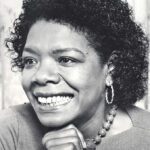
It is not widely known that Professor Maya Angelou resided in Winston-Salem, North Carolina for over 30 years. In fact, it was 1981 when Professor Angelou accepted the first endowed Reynolds Professor of American Studies position, a lifetime teaching position at Wake Forest University. It was a role she took very seriously according to her former students. Professor Angelou once said that “When you learn, teach. When you get, give.”
According to two of her former students, Martin Price, a native of Stoneville, North Carolina, and Yemi Adegbonmire, a native of Baltimore, Maryland, Professor Angelou personified her own wisdom – she was more than just a professor, but was a friend, a mentor and their biggest fan. “It was very important to her to be a teacher. She thought of herself as a teacher and the role that she played at Wake Forest was really, really important to her,” said Price.
Price and Adegbonmire remember the high demand of interest in her courses. They considered themselves incredibly fortunate to have had the opportunity to be under her teaching. Price, who took her Poetry and Dramatic Interpretation course as a sophomore in 1998, recalls vividly his first day in her class: “For Professor Angelou it wasn’t just about learning literature, it was more than that. For instance, she put a big focus on respecting and honoring one another in a way that we as just 19 to 20 year olds weren’t used to hearing. We were instructed to not call each other by our first names. She specifically said ‘we will not in my class feign an intimacy that does not exist.’ This meant that we should respect one another by calling one another as Mr. Price or Professor Angelou or Miss so and so. That was her approach from day one out of the gate…it made us feel like professionals and scholars and it elevated the conversation and made us respect one another in ways we had not considered before.”
For both Price and Adegbonmire, Angelou made poetry come alive in ways that they never imagined. Adegbonmire chose Wake Forest University because of Professor Angelou. “As a young black woman raised by a single, hard-working mom, I had admired Professor Angelou my whole life. Long before I even came to Wake Forest, I had read all of her literary works.” During her time at the university, Adegbonmire developed a very close relationship with her professor that became a lifelong friendship following graduation. “She always told me she was never disappointed in me no matter what career path I took or choices I made. She also empowered me to embrace my Nigerian roots on my father’s side and celebrate that part of my heritage.”
Professor Angelou’s style in the classroom was commanding, yet supportive according to her students. Price remembers well her description of poetry. “She described poetry like gathering olives, which are the feelings and memories that all go into creating a poem and to take all those olives and crush them and squeeze the essence out of them into a single drop of oil – that highly concentrated essence was how a poet condensed their thoughts.”
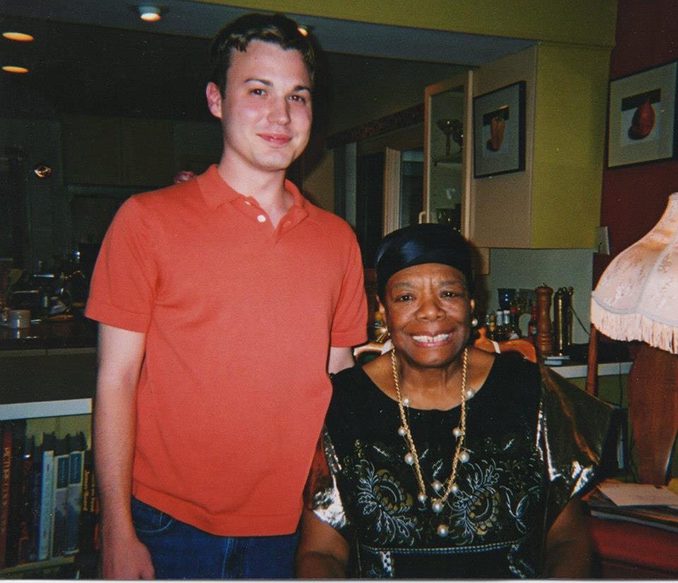
From one of their earliest assignments, Price remembers Professor Angelou stopping a student upon a single word to ask what it meant. She said “When you reach a word you don’t know, you should reach for a dictionary and learn the word because otherwise you are missing the impact of the poem, because the poet has selected that word because it is meaningful and they have chosen it with great intentionality before any other word.” According to Price, the class was about respecting the writer because she believed that language was powerful and we should respect it and immerse ourselves in it.
Professor Angelou’s involvement with her students extended beyond the classroom and her office hours. Her home was intentionally situated within walking distance of the campus and she loved opening the doors to her home to her students. According to Price her home was “warm and cozy and inviting.” Adegbonmire said “When you were at her home you often found yourself surrounded by an eclectic array of artists, poets and thinkers.” The impact of these various voices in many ways was an education outside of the classroom for her students who visited her home.
In the fall of 1996 when I was just fifteen, I too, had the brief opportunity to engage with Professor Angelou. I had been enthralled by her artistry ever since I had heard her recitation of “On the Pulse of Morning” at President Bill Clinton’s inauguration. Following a public lecture I attended at Wake Forest, I found my way to the front of the lecture hall. I can remember her taking my hand and holding it, and it was as if in that brief moment our souls were united. I don’t remember the words we exchanged, but that extraordinary moment has often reminded me of her famous quote “I’ve learned that people will forget what you said, people will forget what you did, but people will never forget how you made them feel.” In that instant, she made me feel as if she cared about my soul.
Serendipitously, just over a year ago her soul reached out to mine in a way that has since challenged me on a daily basis. I had loaned a book to a friend and as they were reading it they called me up to say there was a note stuck between the pages and it was signed by Maya Angelou. Oddly, I could not remember the note, and even less the words. When it was returned to me, I had to sit down to absorb its simple, yet powerful contents. It read “Lindsay, Joy! Maya Angelou 9/96.” It was the imperative I needed in my life at that very moment, and Professor Angelou’s words have spoken to me as they sit on my desk as a reminder each day to expect joy!
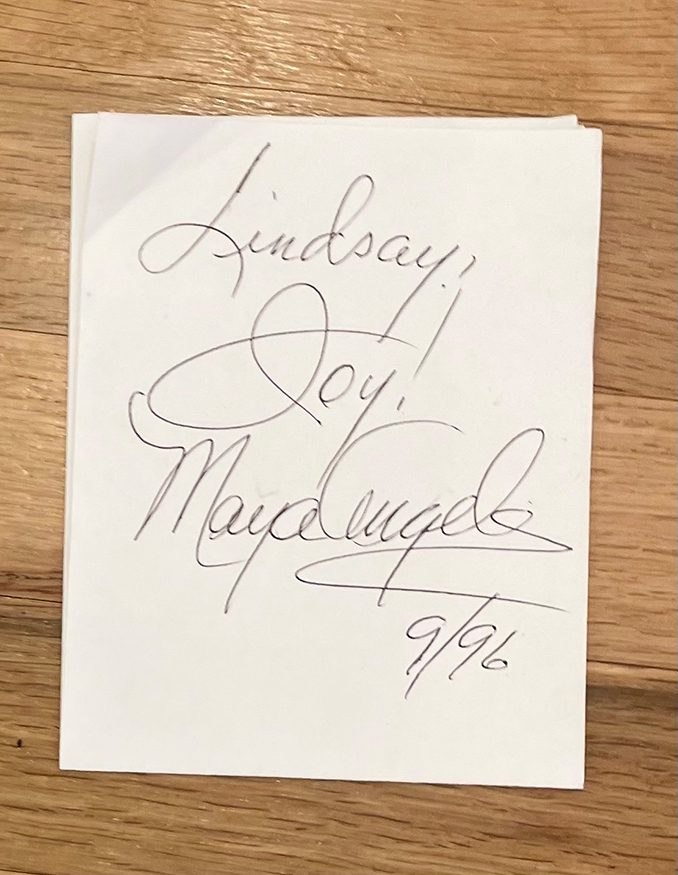
Professor Angelou once said “If you’re going to live, leave a legacy. Make a mark on the world that can’t be erased.” Her greatest legacy I believe lives on in the lives of the students she impacted and the ripple effect they each are creating in the world today.

